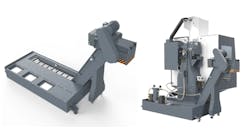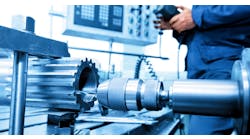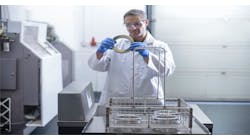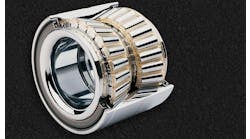The European Association of the Machine Tool Industries (CECIMO) reported its members’ 2011 production totals increased 26% in value over 2010, to approximately €21 billion ($26.4 billion), though the group is concerned that the result was based on strong export volumes – not internal demand. The group’s 2011 results were used as the basis of an appeal for a comprehensive industrial policy that will support EU machine tool builders in their efforts to develop new products and market high-tech products in low-cost emerging markets. The group said the Eurozone debt crisis is impeding access to capital needed to continue industrial progress, and should convince EU regulators to improve their trade and taxing policies to support the region’s manufacturers.
CECIMO’s Economic Committee delivered the 2011 results during the group’s General Assembly this week, in Ghent, Belgium. The group noted its members’ 2011 production total is 15% off the sector’s peak in 2008, adding to the group’s previously stated concerns that weak regional demand is revealing a dangerous lack of commitment to European manufacturing.
CECIMO members’ 2011 exports nearly matched the 2008 peak, totaling €16.5 billion ($20.7 billion), though European machine tool imports together with apparent European consumption (an indicator that CECIMO said reflects “the sentiment” of the market) were well below the 2008 peak, in spite of consumption increases from 2010 into 2011.
Europe’s weak demand for machine tools was also noted by the German Machine Tool Builders’ Assn., (VDW) and Italian Machine Tool Builders’ Assn.,(UCIMU), in their recent quarterly reports.
EU machine tool imports grew 37% to €7.9 billion ($9.9 billion) in 2011, and the apparent consumption rose 29% to €12.2 billion ($15.3 billion), significantly less than 2008 totals.
The figures, however, were preliminary to CECIMO’s broader message, that European machine tool builders’ global market position provides financial and structural support (in terms of employment) to the EU economy.
“The machine tool industry is not a project that can be created overnight and be run without employees,” CECIMO president Martin Kapp stressed. “Europe has been developing its machinery base for many generations and now this high value-added industry with its knowledge-intensive skilled workforce is a backbone of modern European economy.”
But, such an asset needs support to remain competitive, the group stated. “Europe is witnessing a deterioration of its industrial base, which implies increasing unemployment and a risk of becoming dependent in many aspects on third countries,” according to the statement. “The deindustrialization of Europe coupled with rising protectionism in rapidly industrializing countries pose serious risks for Europe as regards to the security of supply in strategic areas.”
“Our overseas competitors recognize very well the advantage of having an industry which is at the core of the next industrial revolution and are pursuing proactive policies in order to reinforce their position or quickly acquire the necessary know-how,” Kapp added.
Kapp said Europe “urgently needs a clear vision supported by targeted policies for its manufacturing industries.” He said the “fragmented and selective” approach is both costly and inefficient, and called for an EU market strategy that will help manufacturers increase their access to emerging markets “before it is too late and before we lose our capacity to invent high-tech products that are necessary to rebuild the future European economy.”
CECIMO said the EU should revise its industrial strategy and develop domestic industrial policy measures that will support European manufacturers’ (especially small and medium-sized enterprises’) efforts to compete globally.





